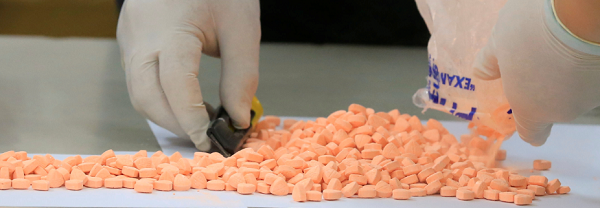Does Medical Marijuana Cure Addiction? Nevada Considering Expanded Medical Cannabis Bill To Treat Opioid Addicts

Nevada’s medical marijuana program could get an upgrade after lawmakers introduced a new bill Tuesday that would allow physicians and social workers to treat heroin and opioid addicts with medical cannabis, according to reports.
Under Nevada’s current medical marijuana law, doctors can refer marijuana products to people suffering from cancer, seizures, glaucoma, AIDS, spasms, nausea or chronic pain, but the program doesn’t support people suffering from drug addiction.
Nevada has allowed adult use of recreational cannabis following the November 2016 passing of Question 2, a measure approving the legal use of one ounce or less of marijuana for adults 21 and up. However, recreational marijuana must be paid for by each purchasing customer, whereas an expanded medical marijuana law that includes addicts would allow doctors to merely write a prescription authorizing the plant for treatment.
The new measure, named Senate Bill 228, came at a time when the nation was facing an opioid crisis after 33,000 Americans died from related overdoses in 2015.
While little scientific evidence has been published regarding the ways in which marijuana could reduce the effects of opioid dependency, a 2014 study published by JAMA Internal Medicine found opioid overdose rates were down almost 25 percent in states that allowed the use of medical marijuana compared to states that did not.
A separate report, published in Health Affairs journal in July 2016, found painkiller prescriptions dropped by an average of 1,826 fewer doses of pills per year in states with comprehensive medical marijuana programs, leading study publishers W. David Bradford and Ashley C. Bradford to conclude that medical cannabis could potentially help combat the ongoing opioid epidemic in the U.S.
An official hearing for Senate Bill 288 has yet to be scheduled, but advocates were hoping congress will be open to allowing addicts to be treated with medical marijuana as opposed to other drugs.
“That freedom to be able to make that choice and use a natural substance that is not going to make you a walking zombie has to be an option here in Nevada,” Jason Sturtsman, a dispensary worker and cannabis advocate who runs an addiction outreach program, told NBC’s Las Vegas affiliate. “They’re able to utilize cannabis to reduce their consumption of those medicines.
© Copyright IBTimes 2025. All rights reserved.






















